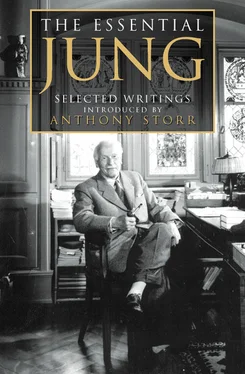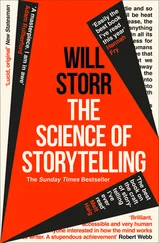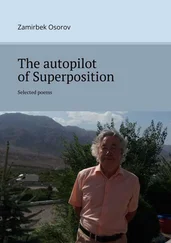These reflections show that even in normal individuals character-splitting is by no means an impossibility. We are, therefore, fully justified in treating personality dissociation as a problem of normal psychology. In my view the answer to the above question should be that such a man has no real character at all: he is not individual (q.v.) but collective (q.v.), the plaything of circumstance and general expectations. Were he individual, he would have the same character despite the variation of attitude. He would not be identical with the attitude of the moment, and he neither would nor could prevent his individuality (q.v.) from expressing itself just as clearly in one state as in another. Naturally he is individual, like every living being, but unconsciously so. Because of his more or less complete identification with the attitude of the moment, he deceives others, and often himself, as to his real character. He puts on a mask, which he knows is in keeping with his conscious intentions, while it also meets the requirements and fits the opinions of society, first one motive and then the other gaining the upper hand.
[Soul as persona]
This mask, i.e., the ad hoc adopted attitude, I have called the persona, which was the name for the masks worn by actors in antiquity. The man who identifies with this mask I would call “personal” as opposed to “individual.”
The two above-mentioned attitudes represent two collective personalities, which may be summed up quite simply under the name “personae.” I have already suggested that the real individuality is different from both. The persona is thus a functional complex that comes into existence for reasons of adaptation or personal convenience, but is by no means identical with the individuality. The persona is exclusively concerned with the relation to objects. The relation of the individual to the object must be sharply distinguished from the relation to the subject. By the “subject” I mean first of all those vague, dim stirrings, feelings, thoughts, and sensations which flow in on us not from any demonstrable continuity of conscious experience of the object, but well up like a disturbing, inhibiting, or at times helpful, influence from the dark inner depths, from the background and underground vaults of consciousness, and constitute, in their totality, our perception of the life of the unconscious. The subject, conceived as the “inner object,” is the unconscious. Just as there is a relation to the outer object, an outer attitude, there is a relation to the inner object, an inner attitude. It is readily understandable that this inner attitude, by reason of its extremely intimate and inaccessible nature, is far more difficult to discern than the outer attitude, which is immediately perceived by everyone. Nevertheless, it does not seem to me impossible to formulate it as a concept. All those allegedly accidental inhibitions, fancies, moods, vague feelings, and scraps of fantasy that hinder concentration and disturb the peace of mind even of the most normal man, and that are rationalized away as being due to bodily causes and suchlike, usually have their origin, not in the reasons consciously ascribed to them, but in perceptions of unconscious processes. Dreams naturally belong to this class of phenomena, and, as we all know, are often traced back to such external and superficial causes as indigestion, sleeping on one’s back, and so forth, in spite of the fact that these explanations can never stand up to searching criticism. The attitude of the individual in these matters is extremely varied. One man will not allow himself to be disturbed in the slightest by his inner processes – he can ignore them completely; another man is just as completely at their mercy – as soon as he wakes up some fantasy or other, or a disagreeable feeling, spoils his mood for the whole day; a vaguely unpleasant sensation puts the idea into his head that he is suffering from a secret disease, a dream fills him with gloomy forebodings, although ordinarily he is not superstitious. Others, again, have only periodic access to these unconscious stirrings, or only to a certain category of them. For one man they may never have reached consciousness at all as anything worth thinking about, for another they are a worrying problem he broods on daily. One man takes them as physiological, another attributes them to the behaviour of his neighbours, another finds in them a religious revelation.
These entirely different ways of dealing with the stirrings of the unconscious are just as habitual as the attitudes to the outer object. The inner attitude, therefore, is correlated with just as definite a functional complex as the outer attitude. People who, it would seem, entirely overlook their inner psychic processes no more lack a typical inner attitude than the people who constantly overlook the outer object and the reality of facts lack a typical outer one. In all the latter cases, which are by no means uncommon, the persona is characterized by a lack of relatedness, at times even a blind inconsiderateness, that yields only to the harshest blows of fate. Not infrequently, it is just these people with a rigid persona who possess an attitude to the unconscious processes which is extremely susceptible and open to influence. Inwardly they are as weak, malleable, and “soft-centred” as they are inflexible and unapproachable outwardly. Their inner attitude, therefore, corresponds to a personality that is diametrically opposed to the outer personality. I know a man, for instance, who blindly and pitilessly destroyed the happiness of those nearest to him, and yet would interrupt important business journeys just to enjoy the beauty of a forest scene glimpsed from the carriage window. Cases of this kind are doubtless familiar to everyone, so I need not give further examples.
[Soul as anima]
We can, therefore, speak of an inner personality with as much justification as, on the grounds of daily experience, we speak of an outer personality. The inner personality is the way one behaves in relation to one’s inner psychic processes; it is the inner attitude, the characteristic face, that is turned towards the unconscious. I call the outer attitude, the outward face, the persona; the inner attitude, the inward face, I call the anima. To the degree that an attitude is habitual, it is a well-knit functional complex with which the ego can identify itself more or less. Common speech expresses this very graphically: when a man has an habitual attitude to certain situations, an habitual way of doing things, we say he is quite another man when doing this or that. This is a practical demonstration of the autonomy of the functional complex represented by the habitual attitude: it is as though another personality had taken possession of the individual, as though “another spirit had got into him.” The same autonomy that very often characterizes the outer attitude is also claimed by the inner attitude, the anima. It is one of the most difficult educational feats to change the persona, the outer attitude, and it is just as difficult to change the anima, since its structure is usually quite as well-knit as the persona’s. Just as the persona is an entity that often seems to constitute the whole character of a man, and may even accompany him unaltered throughout his entire life, the anima is a clearly defined entity with a character that, very often, is autonomous and immutable. It therefore lends itself very readily to characterization and description.
As to the character of the anima, my experience confirms the rule that it is, by and large, complementary to the character of the persona. The anima usually contains all those common human qualities which the conscious attitude lacks. The tyrant tormented by bad dreams, gloomy forebodings, and inner fears is a typical figure. Outwardly ruthless, harsh, and unapproachable, he jumps inwardly at every shadow, is at the mercy of every mood, as though he were the feeblest and most impressionable of men. Thus his anima contains all those fallible human qualities his persona lacks. If the persona is intellectual, the anima will quite certainly be sentimental. The complementary character of the anima also affects the sexual character, as I have proved to myself beyond a doubt. A very feminine woman has a masculine soul, and a very masculine man has a feminine soul. This contrast is due to the fact that a man is not in all things wholly masculine, but also has certain feminine traits. The more masculine his outer attitude is, the more his feminine traits are obliterated: instead, they appear in his unconscious. This explains why it is just those very virile men who are most subject to characteristic weaknesses; their attitude to the unconscious has a womanish weakness and impressionability. Conversely, it is often just the most feminine women who, in their inner lives, display an intractability, an obstinacy, and a wilfulness that are to be found with comparable intensity only in a man’s outer attitude. These are masculine traits which, excluded from the womanly outer attitude, have become qualities of her soul.
Читать дальше












